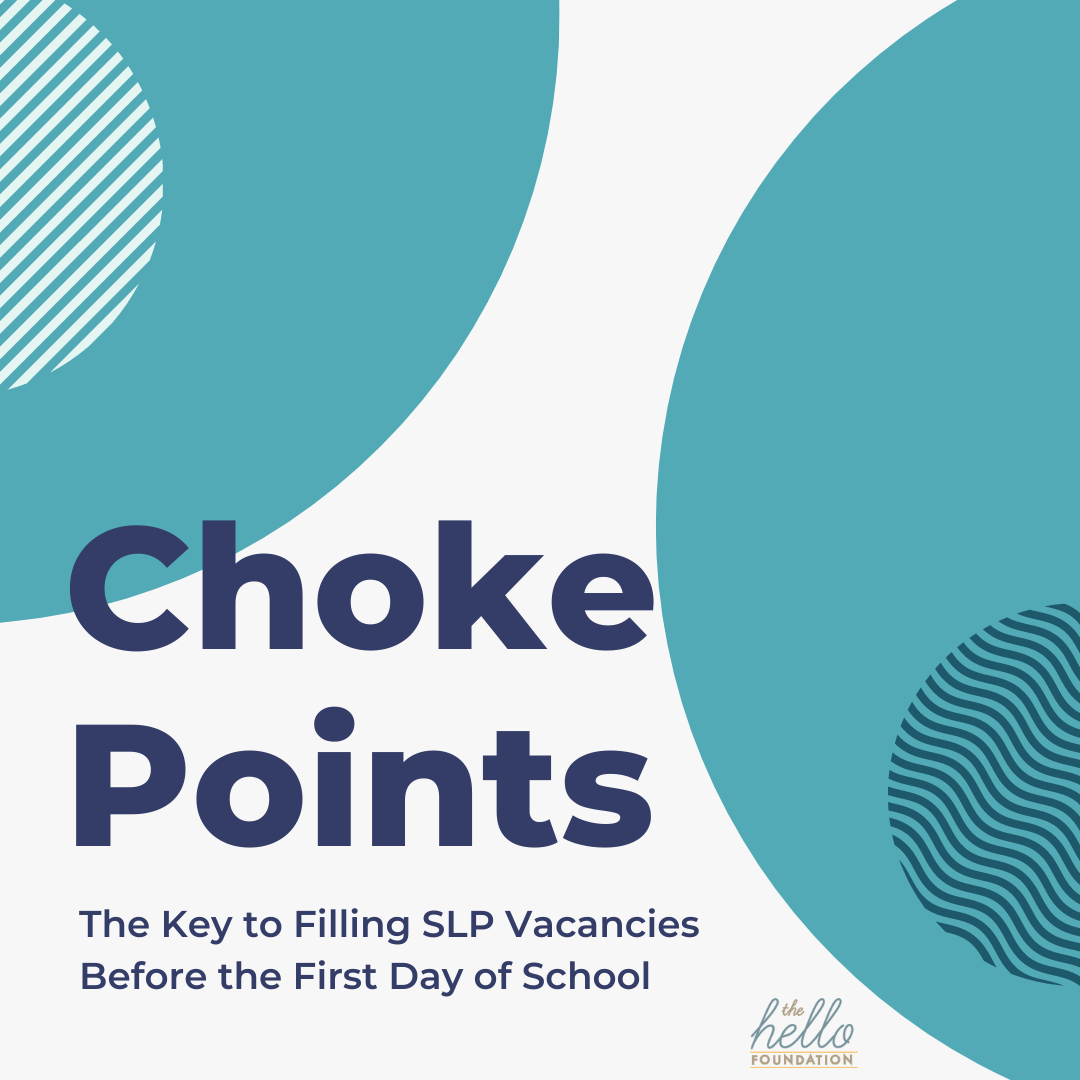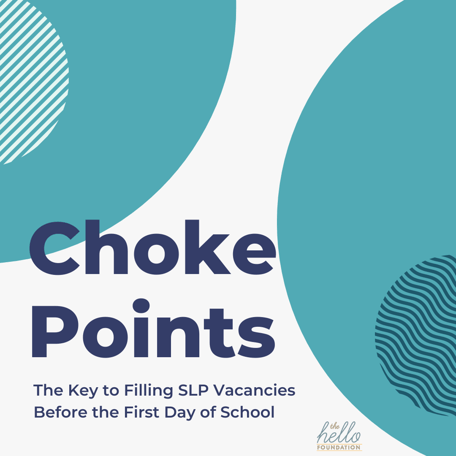
There are moments when educational leaders would benefit from thinking more like business leaders. In business, it's a leader's responsibility to constantly search for choke points that slow efforts to satisfy the customer. When they find one, the leader must then analyze processes and move to eliminate the choke point.
Our company talks to administrators every day. Here is what they're saying:
"I can't hire specialists! We haven't had a single applicant."
"Applicants are plenty if I agree to teletherapy. But I don't want teletherapy."
"Our caseloads are so high . . . why aren't more kids getting dismissed from speech in special ed?"
Simultaneously, parents are worried that their children will not be getting adequate services. Teachers are anticipating an isolated road where no one can help them with their most challenging students. All while specialists are exploring a wide array of options that they hadn't considered pre-pandemic. Unless your district is doing something notably different, few may be eager to sign on. This sort of labor shortage when demand is high is the very definition of a choke point.

And yet, 99% of districts are not thinking like business leaders. They are not looking at the choke point, doing the analysis, and making changes that might eliminate all of the above. They are instead pushing forward, insisting on viewing caseloads as they always have, hoping candidates will materialize in the next 3-6 weeks. Every one of these administrators wants a live body in their building because they equate that with quality.
One of the lessons we learned in the last two years is that teletherapy can be a superior model if a specialist can access expert help for specific student needs. Kids make progress, and again and again, kids are dismissed from speech.
This sort of thinking is not a new concept in schools. A district may match a teacher struggling to teach decoding with a reading specialist. That specialist will help the teacher better understand her practice and explore alternative methods the teacher may not yet be familiar with. That's eliminating a choke point and countless students will benefit.
Unlike teachers, speech-language pathologists working onsite in a building typically have no one to turn to when they need additional support. When isolated, SLPs often push forward, trying multiple things, educating themselves on their own time to solve problems. When an SLP is working online, districts can utilize a more efficient and supportive model, and additional specialists can put eyes (and ears) on a student.
Examples of a highly qualified specialist working online and accessing assistance I've witnessed:
- Including a stuttering specialist in the session to help a student (and the specialist) understand another approach to blocked speech
- Including a student's grandparent in the session during the school day to better understand targets for homework as grandparent provided after school care. (Speech homework completion equates to remediation and dismissal from speech!)
- Including an OT (at no expense to the district) in an articulation session for consultation on a student's fine motor challenges
- Including two other SLPs with mastery of establishing the /r/ sound (at no cost to the district) to listen to a student who had been targeting /r/ for years without success (until these SLPs got involved!)
No single specialist can know everything. A great specialist knows their limits and actively seeks out assistance to get the help their students need. Teletherapy shouldn't be viewed as a second-class service. Done correctly with the right group, it can be a solution to more than one choke point.
And this is the point many administrators say to me, "That's great, Sharon, but I can't even hire an SLP to work remotely!" When I then ask about hiring a speech-language pathology assistant (SLPA), these same administrators tell me that they don't need one.
It's a choke point within a choke point.
Certified and credentialed speech-language pathology assistants can see students, understand speech and language goals, write their own lesson plans, and consult with parents and teachers. They can complete screenings for speech and language concerns and work under the direct supervision of a licensed SLP, onsite or remotely (a quality company should be able to provide that supervision if your current district employees can not). An SLP and SLPA, when paired together, can provide better, more frequent, higher quality services to a more significant number of students and their families.
Educational leaders who think like business leaders will seek out these sorts of creative solutions to keep the service engine moving forward for all students who should be receiving speech and language support. They will have staff in place on the first day of school, ready to assess and meet student needs, while other districts will still have vacancies posted in the hopes that an onsite SLP will materialize.
Will it look different? Yes.
Will it require some education of building staff and parents? Yes.
Are our students desperate for quality support this year? Yes, yes, they are.
This fall, solving choke points will require the courage to say, "Hey, let's take the best of what we learned in the last year and put it to smart use now."
The alternative? Keep doing what's always been done and hope for a different result.
